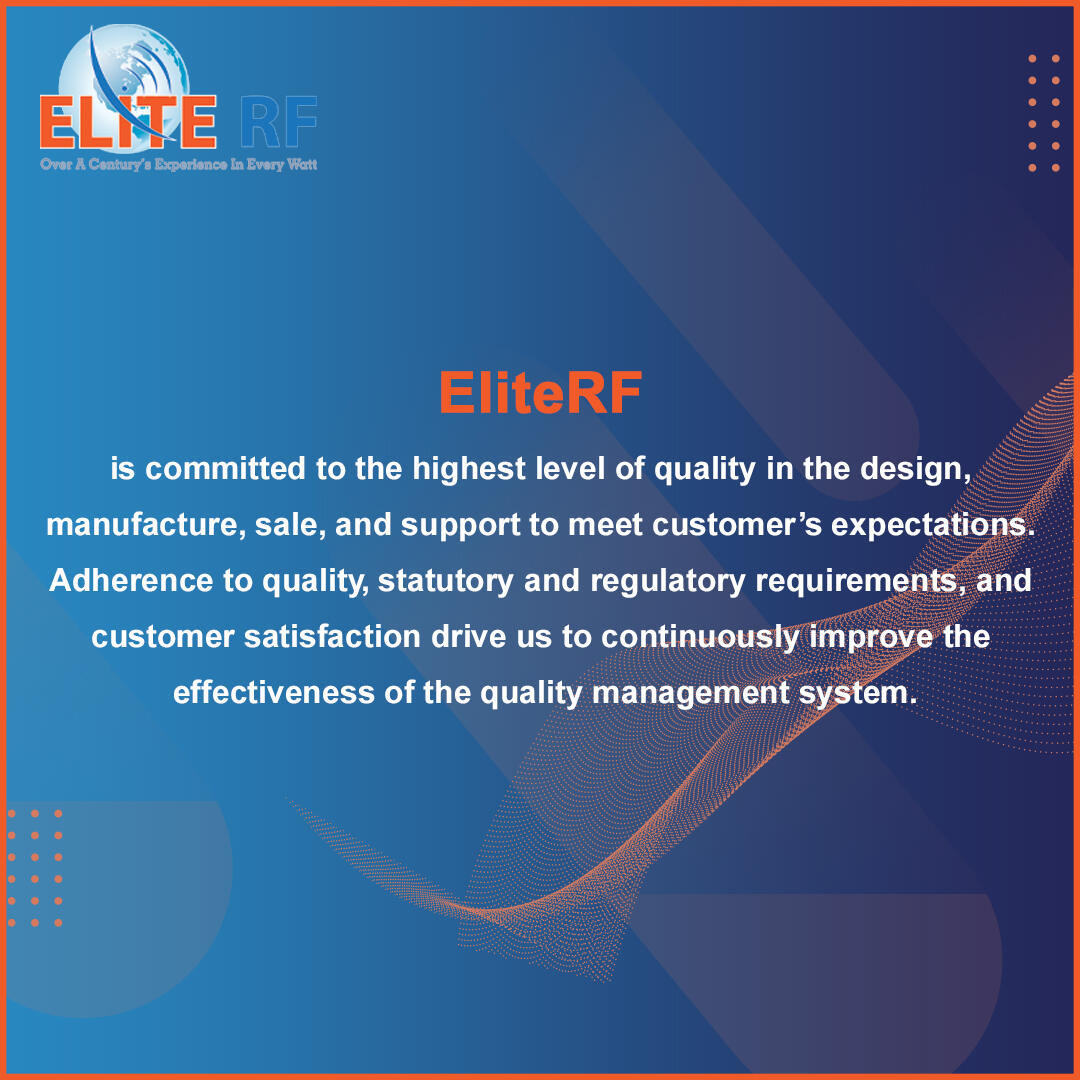Choosing the most suitable RF power amplifier is critical to achieving desirable performance in RF systems. In this blog post, we will explore various factors to consider so your application’s requirements can be met.
Power Output
The saturated or peak power of an RF power amplifier is one of the most critical features. It is the power level at which the amplifier indicates the maximum power delivered to the load. You need to know your application's power requirements to choose the amplifier with the right output power capability. Whether you require amplification with low power or high-power capabilities, choosing the amplifier with the correct output power is essential to the general functionality of your system.
Bandwidth
Another critical factor is the frequency range or bandwidth of the RF power amplifier. Many applications operate within the specification of specified frequency bands, so it’s vital to choose the right amplifier that can amplify any input signals in the defined frequency range. Moreover, amplifier performance at every frequency varies, so engineers must read the performance plots of an amplifier during their amplifier evaluation process.
Linearity
Signal integrity is of paramount importance regarding wireless communications. Linearity is a very important characteristic of a radio frequency power amplifier because it guarantees the output signal as a replica of the input signal without other distortions. When choosing the amplifier, very close attention should be paid to the characteristics of linearity that can meet your application requirements to save signal fidelity enhancing total system performance. In Class AB RF amplifiers, with increasing input signal the amplifier shows linearity up to P1dB point and then becomes nonlinear till it achieves saturated power Psat point. Depending on the application, P1dB and Psat are crucial parameters for RF system integrators.
Gain
In simple terms, gain or power gain defines the amplification property of an amplifier. Higher gain means more output power for an input signal. Engineers must look at 2 different gain factors – small signal gain in the linear region v/s large signal gain in the non-linear regions while selecting RF amplifier.
Efficiency
The efficiency of RF power amplifiers is critical in several ways. An efficient RF power amplifier offers the best method to reduce power consumption and heat dissipation, ensuring the best system performance possible. In addition, assessing an amplifier's efficiency to meet your application's pre-set requirement for efficient operation allows for saving costs over time.
Thermal Management
Reliable RF power amplifiers depend heavily on effective thermal management as they generate a lot of heat. Thermal dissipation via heatsinks or other mechanisms principally prevent overheating and give the amplifier long-term reliability. Identifying the amplifier’s thermal management characteristics and choosing one most suitable for managing the temperature to maintain optimum operating conditions maximizes its lifetime.
What Elite RF Can Offer You
Elite RF offers a wide range of RF amplifiers, including RF amplifier modules and systems below 40 GHz, EMC RF power amplifiers, custom RF power amplifiers, and high-power RF amplifiers. All our solutions are designed to be highly qualitative and constructed to serve the needs of specific applications with great engineering details. Amplifiers are designed to ensure high performance, reliability, and efficiency.
Conclusion
Some of the most important considerations include the power output, operating frequency range, gain, efficiency, linearity, and thermal dissipation of any RF power amplifier. Knowing these key points and looking at Elite RF's products will help make an appropriate choice that boosts the RF system's performance.


